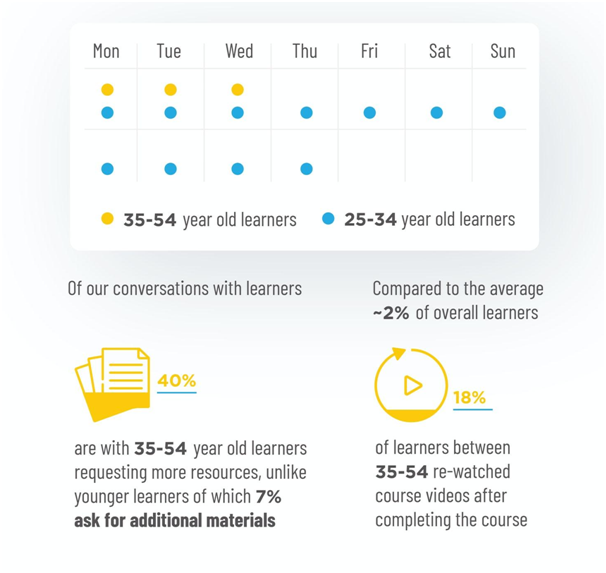Online Learning Insights From the Global Pandemic In these confusing times, an abiding hope for the future, an urge to grow amidst the churn and gloom, and an effort to feel (somewhat) in control drove so many of us to focus on self-development
Opinions expressed by Entrepreneur contributors are their own.
You're reading Entrepreneur India, an international franchise of Entrepreneur Media.

The year 2020 threw curveballs at most of us; the entire learning ecosystem was collectively put into question and organizational strategies that used to work now faced wide barriers.
In these confusing times, an abiding hope for the future, an urge to grow amidst the churn and gloom, and an effort to feel (somewhat) in control drove so many of us to focus on self-development: we all know stories of incredible weight loss, new fitness regime, an embracing of new passions such as cooking, or the determined rise in upskilling and reskilling.
These insights from 2020 are a nod to the year when so many of us became online learners for the first time.
Lifelong learning is for real: don't assume who wants to learn what!
Throughout last year, we learned so much: most importantly, not to assume who wants to learn what, when, and at what stage of their life and career. Our learners come from all walks of life: teachers, data science professionals, government administrators, first-time entrepreneurs, and senior corporate managers. Contrary to what some people may believe, the learners in the older age category engaged more with our cognitive and social courses compared to younger learners.

Learners still care about "marks"!
I consider online learners of today to be early adopters of new technology. Usually, early adopters are rebels at heart, excited by new frontiers and new futures. But, even the most future-forward of us have been shaped by our past.
This has been most evident to us when it comes to assessments—and "scores"! More than anything on any other part of the learning journey, learners are highly invested in the feedback layer on the practice and assessment segments in our courses. Their engagement, probably because it leads to their scores, is highest at these points. Encouragingly, they also ask for qualitative feedback, discuss the scores they have got, and debate answers they got wrong!
There is a prime time for learning too!
The learning phase appeared less evenly distributed during the entire day but rather showed an acute variation in learner behavior: specific peak hours and most preferred days of the week. Lockdowns had an impact on popular learning days too. The research for it introduced us to principles on foundational skill learning patterns that these learners inculcated in their routines. Around 11 am was the most popular learning hour (no-commute and learning with morning tea/breakfast works!) followed by 4 pm for our learners (data from all learners from January 2020 to December 2020).

Also, the weekend binge was real! Weekend learners spent more time on the platform. Sundays had the highest session duration, followed by Saturday (20-25 minutes). The average session duration on weekdays was about 15 minutes.
Well begun is half done!
Our learner analytics show that if they can break through the inertia, friction, and barriers, in the beginning, learners become more invested in completing the courses, programs, and journeys they take on. A course that is started, keeping in mind learner behavior in a peerless narrative, is much likely to respond better.

Slow and steady never goes out of style
The key benefit of self-paced courses is the autonomy learners have: courses can be completed in concentrated bursts, in oft-nudged long saunters with long breaks and a smooth, episodic rhythm over the first four weeks.

Career services is an acutely felt pain
According to the surveys, earning their own money and learning new skills is what graduates look forward to most after college, yet nearly half of all students lack direction.
Keep practice short, sweet and simple!
To reinforce concepts already learned through running behavior challenges, we've realized that it's crucial that the activities are simple to do. This is one of the most important things to get right for deliberate practice after a course is completed (key for building habits and changing behaviors!) and is as true for mature professional learners as it is for younger learners.
High-effort activities see less engagement and participation from learners. Keeping these practice lessons short and concise facilitates learners to engage well that further leads them to the completion of course.
The more the merrier: an involved custodian equals great outcomes
Most learners respond better when they get to engage with a single point of contact, their SPOC, and have their queries and difficulties addressed. These people are also willing to experiment with new ways to engage learners and yield better learning outcomes.
Learners are inspired when they realize good communication isn't just good English
Nervousness in English holds people back and is the most important reason for poor interview performance. Fluent English skills remain a valuable currency of progress in urban India, irrespective of its debatable fairness. But, proficiency in language isn't the only way. Treating language as a barrier results in learners regressing on the path of development.
Clear difference in learning preferences across generations!
In skill learning courses, age affects learning behavior and directs their engagement metrics.










